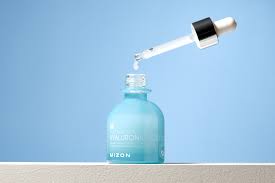
Can You Use Hyaluronic Acid During the Day? Everything You Need to Know
By now, you’ve likely heard about hyaluronic acid and its magic for the skin. This powerful humectant is a favorite of dermatologists and skincare fans alike.
But when exactly should you apply it—morning or night?
In this in-depth guide, we’ll explore how and when to use hyaluronic acid, how to combine it with other skincare ingredients, and whether it’s suitable for daytime use. Spoiler: it absolutely is.
Let’s break it all down, one clear, concise sentence at a time.
What Is Hyaluronic Acid and What Does It Do?
Hyaluronic acid (HA) is a molecule naturally found in our bodies, especially in skin, eyes, and connective tissues.
Its main function is to retain moisture, holding up to 1,000 times its weight in water.
In skincare, it helps to hydrate, plump, and smooth the skin.
It also supports a healthy skin barrier, which protects against pollution and environmental stressors.
HA is often found in serums, moisturizers, masks, and even cleansers.
It works well for all skin types, including oily, dry, and sensitive skin.
Can You Use Hyaluronic Acid During the Day?
Yes, you can absolutely use hyaluronic acid during the day.
It’s non-irritating, non-photosensitizing, and safe under makeup and sunscreen.
Using it in the morning helps your skin stay hydrated all day long.
Apply HA serum after cleansing and toning and before your moisturizer and SPF.
Pairing it with SPF is especially important to lock in moisture and protect your skin.
The result is a dewy, plump, and protected complexion throughout the day.
Should You Use Hyaluronic Acid in the Morning or Night?
You can use hyaluronic acid morning, night, or both—it’s that versatile.
Some people prefer morning use for all-day hydration and smoother makeup application.
Others use it at night to help their skin recover while they sleep.
For optimal results, consider using it twice daily as part of your routine.
Just be sure to apply it on slightly damp skin for best absorption.
How to Apply Hyaluronic Acid Correctly
Apply your hyaluronic acid product to damp skin, not dry.
It needs water to work effectively and will draw it from where it’s most available.
If applied to dry skin, it may actually pull moisture from deeper layers, causing dryness.
Use a gentle toner or facial mist beforehand to prep your skin.
Then apply your HA serum using your fingertips, pressing it gently into the skin.
Seal it in with a moisturizer to prevent water loss and create a hydration barrier.
Serum or Moisturizer: Which Is Better for HA?
Serums usually contain a higher concentration of HA and have a thinner texture.
This allows them to penetrate deeper into the skin for more noticeable results.
Moisturizers with HA help reinforce the skin’s barrier and lock in hydration.
For maximum effect, use HA serum first, followed by a moisturizer.
This two-step combo ensures both deep and surface-level hydration.
Does Hyaluronic Acid Work in the Sun?
Yes, HA is completely safe to use in sunlight.
Even though it has “acid” in the name, it’s not an exfoliating acid.
Unlike AHAs or BHAs, it doesn’t make skin more sun-sensitive.
However, using it with SPF 30 or higher is essential to protect your skin.
Sun exposure can still lead to water loss and damage if skin isn’t properly shielded.
Think of HA as your skin’s water bottle—and SPF as its umbrella.
What Not to Mix with Hyaluronic Acid
Hyaluronic acid plays well with most other skincare ingredients.
It’s safe to use with retinol, vitamin C, niacinamide, peptides, and ceramides.
However, avoid combining it with products high in alcohol, as these can dry out your skin.
Also be cautious when layering it over strong exfoliants or astringents.
These can disrupt your skin’s barrier and reduce the effectiveness of HA.
When in doubt, check product ingredient lists or ask a dermatologist.
Can You Use Vitamin C and Hyaluronic Acid Together?
Yes, vitamin C and hyaluronic acid are a power couple in skincare.
Vitamin C brightens skin and fights free radical damage.
HA hydrates the skin and soothes any potential irritation from vitamin C.
Apply vitamin C serum first, then follow with HA to calm and hydrate.
This duo works especially well in the morning under sunscreen.
Just be careful with sensitive skin—do a patch test first.
Can You Use Hyaluronic Acid Around the Eyes?
Yes, but apply it with care—the eye area is delicate and thin.
Use only a small amount and tap it in gently using your ring finger.
Look for eye creams specifically formulated with HA for added safety.
HA can help reduce the look of fine lines, puffiness, and dryness.
Avoid applying it too close to the lash line to prevent irritation.
If in doubt, consult a dermatologist or optometrist before use.
Can Hyaluronic Acid Cause Dryness?
It sounds strange, but yes—HA can dry your skin out if used incorrectly.
This happens when it’s applied to dry skin in a dry environment.
It pulls moisture from wherever it can, even from deeper skin layers.
To prevent this, always apply it on damp skin and seal it in with a moisturizer.
A humidifier in your room can also improve hydration results.
Who Should Use Hyaluronic Acid?
Almost everyone can benefit from using HA.
It’s especially great for those with dry, dehydrated, or sensitive skin.
Oily and acne-prone skin types can also use it because it’s non-comedogenic.
Mature skin benefits from its ability to plump fine lines and improve elasticity.
Teenagers and adults alike can safely incorporate it into their routines.
If you’re pregnant or breastfeeding, check with a healthcare provider—but it’s generally safe.
How Long Does It Take to See Results?
Some people notice smoother, more hydrated skin immediately after use.
With consistent use, expect noticeable improvements within 2 to 4 weeks.
Fine lines appear reduced, and your skin may feel softer and more supple.
For lasting results, use it daily and consistently as part of your routine.
Consistency is key when it comes to skincare, especially with hydrators like HA.
Tips for Getting the Most Out of Hyaluronic Acid
Use it on slightly damp skin
Always follow with a moisturizer
Pair with ingredients like ceramides or glycerin for enhanced hydration
Avoid using it over drying alcohol-based products
Layer it under sunscreen during the day
Store it in a cool, dark place to protect its potency
Use a humidifier in dry climates or during winter
Final Thoughts: Should You Use Hyaluronic Acid in the Daytime?
Absolutely—hyaluronic acid is daytime-friendly, effective, and safe.
When used correctly, it gives your skin the hydration boost it craves.
It also helps support a healthy barrier and enhances other products’ performance.
Just remember: apply to damp skin, lock it in with moisturizer, and top with SPF.
Whether it’s morning or night—or both—HA is a skincare essential worth having.
Follow us on Instagram for more skincare advice, expert tips, and product recommendations.
We share the best routines, real results, and answer your skincare questions daily!


